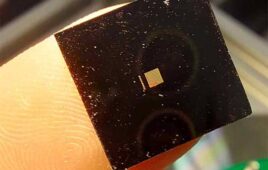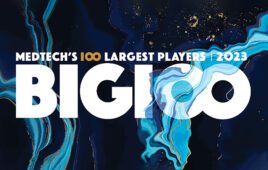Patricia Arean, professor of psychiatry and behavioral sciences at the University of Washington, has been studying the effects of the game, called Project: Evo, on people who suffer from depression. Arean performed two studies. In the first, she studied the effects of the game on people with late-life depression, adults aged 60 or older, and compared them to traditional talk therapy. In the second study, she studied 600 participants and compared Project: Evo to other depression apps.
“What we found is that the video game was as effective as the talk therapy,” Arean said. “We think the reason why the video game was effective is because it was specifically exercising a part of the brain that we think is associated with depression.”
The game, developed by Akili Interactive Labs, was originally designed to help people who have attention deficit disorder (ADD), but researchers discovered that its cognitive benefits improved depression as well.
“Not having a lot of motivation, feeling like it’s hard to accomplish tasks, feeling very hopeless, feeling very distracted, like they can’t follow a conversation, they find themselves ruminating on bad things in the past,” Arean said.
About 18% of the U.S. population, or 40 million people, have some type of anxiety disorder. Nearly half of those who have anxiety also suffer from depression, affecting 15.7 million adults in the U.S. An additional 2 out of 100 young children and 8 out of 100 teens suffer from depression. Depression is highly treatable, but only a little more than one-third of those affected seek treatment. According to a report from the CDC, only 35% of people with severe symptoms have reported contacting a mental health professional.
“When you’re depressed it becomes very hard for people to meet their goals,” Arean said. “They get very distracted by what we call internal information. They feel like maybe they’re not going to be successful at reaching their goal. If they go out and socialize they’re going to have a bad time. If they do go out and socialize, they might be paying more attention to who’s not talking to me, who didn’t laugh at my joke. What we’re finding is, they have a much easier time concentrating. They feel more motivated to do positive things for themselves. When they are engaged, in even difficult tasks, they feel more successful.”
Project: Evo is centered around an alien who travels from world-to-world to collect different specimen and can be played on most tablets and smartphones. It gets progressively harder throughout the game to help improve concentration and focus. The game was developed to target neurological systems through sensory and digital mechanics using cognitive science.
In the study with late-life depression sufferers, study participants had to play Project: Evo for at least 20 minutes a day and attend weekly meetings with clinicians. The results showed that the game helped people focus their attention better and easily prevented people from being distracted. About 80% of participants reported feeling less depressed after playing the app.
“While EVO was not directly designed to treat depressive symptoms; we hypothesized that there may indeed be beneficial effects on these symptoms by improving cognitive issues with targeted treatment, and so far, the results are promising,” said Joaquin A. Anguera, a University of California San Francisco researcher in neurology and psychiatry and lead author on the study.
The second study had a participant pool of 600 people who reported being moderately or mildly depressed. The participants had to use three interventions: Project: Evo; iPST, a problem-solving therapy app; and Health Tips app that acted as a placebo.
The study showed that people who were mildly depressed noticed improvements using all three interventions. Those who were more than mildly depressed saw improvements in their symptoms when using the two therapy apps versus the placebo.
“We found that moderately depressed people do better with apps like this because they address or treat correlates of depression,” said Arean.
Project: Evo is going through multiple clinical trials in hopes of being able to use the app to treat other cognitive disorders like Alzheimer’s, traumatic brain injuries and attention-deficit hyperactivity disorder (ADHD).
The study results were published in the Depression and Anxiety journal online on Jan. 3.
[Want to stay more on top of MDO content? Subscribe to our weekly e-newsletter.]





